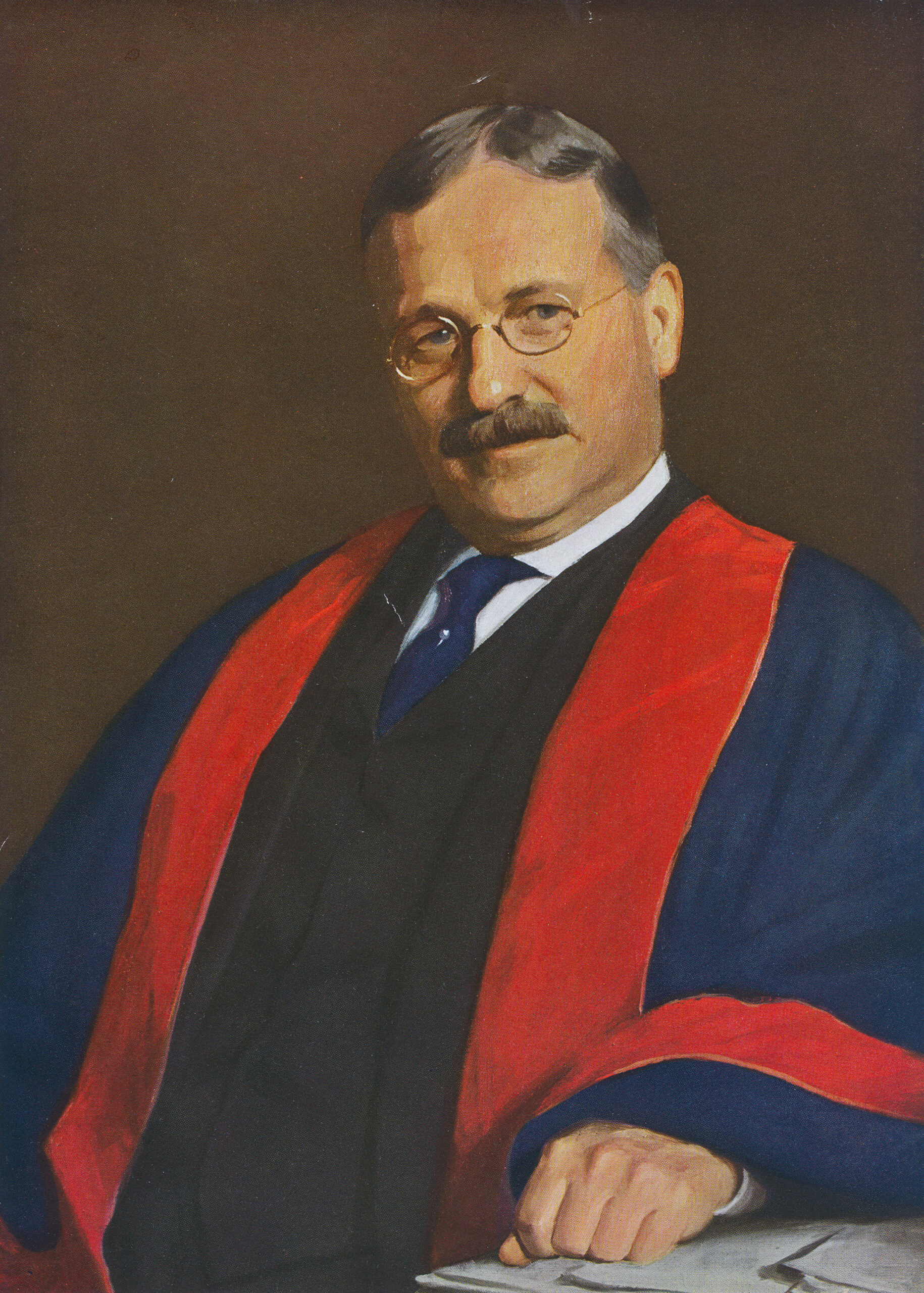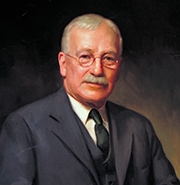John Miller Turpin Finney

John Miller Turpin Finney
- Artist:
- Harold Knight
- Date:
- 1926
- Medium:
- Oil on canvas
- Dimensions:
- 35.5 x 28.5 in.
John Miller Turpin Finney
1863-1942
Finney, a surgeon at Johns Hopkins, was born in Natchez, Mississippi. He received his B.A. from Princeton University in 1884 and his M.D. from Harvard Medical School in 1889. After completing an internship at Massachusetts General Hospital, Finney was appointed associate in surgery at The Johns Hopkins Hospital in 1891. In 1893, he traveled to Europe to meet and observe the best surgeons on that continent. Finney returned to Johns Hopkins and served as associate in surgery, and as associate surgeon until 1914. He built an outstanding reputation for his surgical skills.
Finney had joined the National Guard in 1898, and during World War I, was called to serve in France as the commander of Base Hospital 18, the Johns Hopkins Hospital unit. Shortly after arriving, he was named the chief surgical consultant to the American Expeditionary Force. After his tour in France, Finney was awarded the Distinguished Service Medal from the United States, the Commandeur de l’ Ordre de la Couronne from Belgium, and the Officier de la Legion d’Honneur from France.
After the war, he returned to Johns Hopkins and private practice. When William Halsted died, the position of chief of surgery was offered to Finney. He declined, but served as acting surgeon-in-chief until a new chief was named in 1925. From 1925 until 1930, he served as both visiting surgeon and professor of clinical surgery. In 1930, Finney was appointed professor of surgery; then in 1933, he was named emeritus professor of surgery.
Finney was involved in leadership of many professional organizations. In 1913, he was elected as the first president of the American College of Surgeons, an organization in which he was a founder. He was also a fellow and former president of the American Surgical Association. Finney was a member of the Baltimore City School Board, the Maryland State Board of Education, the board of trustees of Princeton University, and chairman of the Baltimore chapter of the American Red Cross. He was awarded the esteemed Bigelow Medal from the Surgical Society of Boston, and was made an honorary fellow of the Medical Society of London, the Hunterian Society, and the Royal Colleges of Surgeons of England, of Ireland, and of Edinburgh.
Additional Portrait(s) of John Miller Turpin Finney
"*" indicates required fields

